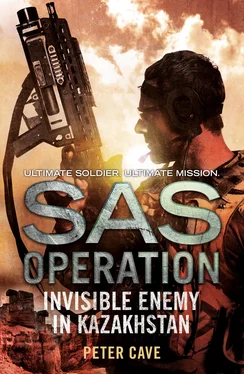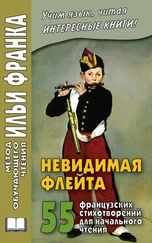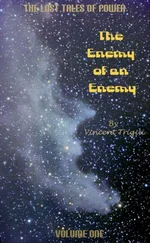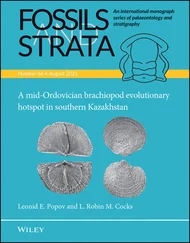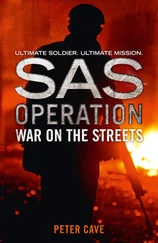The brief speech presumed a response. Predictably, Leveski obliged.
‘A toast, comrade?’ he suggested.
‘A toast indeed.’
Oropov slid open a drawer in his desk and drew out a quarter-full bottle of Stolichnaya and two conical, stemless glasses. He handed one to Leveski, filled it, then splashed a generous measure into his own.
‘ Rodina ,’ Oropov grunted, waving the glass briefly in the air before placing it to his lips and draining the fiery vodka at a single gulp.
‘ Rodina ’ Leveski responded with suitable fervour in his voice. The word translated simply as The Motherland’, but it carried the patriotic zeal of an entire national anthem to anyone with a drop of Russian blood in their veins. In a society which had largely turned its back on the Church, it was the litany of a new and potent religion.
The time for pleasantries was over, Oropov decided. It was obvious that Leveski had not entered his office on a purely social visit. He returned the bottle of vodka to his desk, smiling up at the man politely. ‘Well, Tovan Leveski, what can I do for you?’
The little man cleared his throat, managing to make the apparently innocent gesture a censure of Oropov’s smoking habit.
‘We are a little concerned about the lack of information currently on file regarding Allied armaments projects.’
Oropov ignored yet another implied rebuke. He raised one shaggy eyebrow the faintest fraction of an inch. ‘ We , comrade?’
‘I’, Leveski corrected himself hastily, uncomfortably aware that he had just let something slip, without fully understanding its relevance. Just like General Oropov, he had yet to adjust fully to the scope of his position and powers. ‘I find myself slightly worried about the gaps in our intelligence. I was briefed to acquaint myself fully with current military research, but I find some of your dossiers and files rather sparse, to say the least.’
Oropov made a steeple of his fingers, pressing them gently against his lips. He eyed Leveski stonily. ‘Specifically?’
‘Specifically, this “Manhattan Project”. As a military man, you must surely appreciate the momentous implications of a nuclear fission bomb. Yet we appear to have no idea at all just how advanced the Americans are in its development. Cause for worry, would you not agree, General?’
‘Indeed,’ Oropov agreed. ‘And, equally, a matter for the tightest and most efficient security screen we have ever encountered. The potential power of atomic weaponry is not lost on the Americans, either. Our files represent our finest efforts and the deaths of two top agents. I assume you have followed up on the cross-reference file relating to the German research facility at Telemark?’
Leveski nodded. ‘Of course. Again, a woefully thin report and a disgusting fiasco. The damned Norwegians and the Allies made fools of us. It should have been Russian troops who stormed that laboratory. Then the secret of heavy-water production would be in Soviet hands, not at the bottom of some damned fiord.’
‘Our troops were otherwise engaged at the time,’ Oropov pointed out rather icily. ‘But a tragic loss to Soviet science, I agree. However, I understand our own atomic research facility is now well established.’
Leveski’s lips curled into a sneer. ‘Oh yes, two or three years behind the blasted Allies, at a conservative estimate.’
He hunched his shoulders, as if to subdue a shiver of rage, finally releasing only a faint shrug. ‘However, that is past news. What matters now is the future. Do we have any active personnel inside the Manhattan Project?’
Oropov shook his head. ‘No one with scientific knowledge, I’m afraid. There is a woman – a minor clerical worker – who is able to send us copies of purchasing invoices, interdepartmental memos, that sort of thing. We are able to glean a little theoretical knowledge, but not much else.’
Leveski digested all this information for a while, assimilating it into the dossier in his brain.
‘Have we made any attempts to get to the man Oppenheimer direct?’ he asked finally. ‘Our records suggest that in his postgraduate days, at least, he had certain…sympathies?’
Oropov spread his hands in a gesture of resignation. ‘A fact also realized by the Americans. Oppenheimer is a very important man, and a deeply mistrusted one. His every move is closely monitored. It is impossible to get an agent within shouting distance of him.’
‘So we have nothing? No one? No chance of further information. Is that what you are telling me?’
Oropov was beginning to wilt under the mounting attack. ‘It’s not as bad as that,’ he countered, somewhat lamely.
‘No? Then please tell me how bad it actually is, comrade.’
Leveski knew that he had his man on the run now. There was little point in any further pretence at friendliness.
‘There is one man – in England. Klaus Fuchs. We have him as a sleeper. He is not attached to the Manhattan Project, but his work involves him in a closely related field. In a year or two, perhaps, he may be of great use to us.’
‘A year or two?’ Leveski said dismissively. He rose from his high-backed chair, his mouth twitching angrily with barely repressed frustration. ‘In a year or two, comrade Oropov, Russian science will be left behind like a sick, abandoned animal. Out in the cold, waiting to die.’
There was a slight tremor in Oropov’s voice when he finally spoke again. He was acutely aware that Leveski had only just started to show his claws, and the Kremlin rumours were beginning to assume a chilling reality.
‘What is expected of me, comrade Leveski?’
‘You don’t know? Then I had better spell it out for you,’ Leveski sneered. ‘The demands of this war, and sheer Nazi fervour, have resulted in one of the greatest explosions of science and technology this world has ever known. Those scientific breakthroughs are the key to the future – the richest and most precious spoils of war. At this very minute the Allies are picking their way across Europe like scavengers, snatching up the juiciest morsels. Physicists, rocket experts, engineers, designers, the finest brains of Germany – all falling into capitalist hands. Any day now the Western powers may have the secret of the atomic bomb. In a matter of a few years, the power to deliver it across oceans and continents. In a decade, world domination in their pockets. And if that happens, comrade, we might as well sell our bodies and souls back to the Tsars, because we will have lost everything this great nation has struggled and bled for. Something the Russian people would never forgive, General. And perhaps more important to you, personally, something that I would never forgive.’
The gauntlet was down. Oropov struggled to control a nervous shiver, and failed. His voice was little more than a croak.
‘What do you want me to do, comrade Leveski?’
The man was now regarding him with undisguised contempt. ‘I’m glad that you finally realize how high the stakes are, General. And, no doubt, the penalties for failure. I want a short-term plan. A definite and positive strategy to ensure that Russia snatches some worthwhile prize from this war. Give me a phoenix from the ashes, General – that is all.’
Leveski turned on his heel and moved towards the door. He delivered his parting shot over his shoulder, without turning round. ‘You have forty-eight hours, General. I expect to see a detailed report on my desk by Thursday.’
He closed the door quietly, almost gently behind him. Strangely, this seemed to reinforce the aura of menace he left behind him rather than lessen it.
Alone now, Oropov gave up the uneven struggle to stop his hands from shaking. He delved into his desk, pulled out the vodka bottle and uncorked it with his teeth. Holding the bottle directly to his lips, he gulped down the harsh spirit. It did little to thaw out the icy chill he felt in the pit of his belly.
Читать дальше
